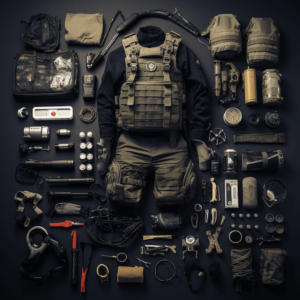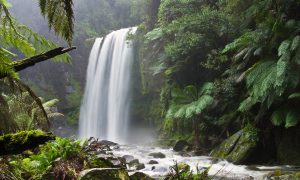Stocking up on survival supplies such as your self defense ammo and watching videos about prepping is a good start, but you don’t need to spend the weekend in the wilderness to learn life-saving skills. In fact, you can practice many of these skills from the comfort of your own home!
These outdoor survival techniques can help you feel calmer when disaster strikes. They can help you satisfy your basic needs such as safety, warmth and food and provide a map to survival.
Shelter
Sheltering yourself from the elements can be a vital survival skill in any wilderness situation. Exposure to the elements is the most common cause of death in the wilderness. Most people believe that a person will only survive for three hours without shelter. Even mildly cold temperatures can be dangerous, as they cause hypothermia and dehydration.
 The first step is to clear the area. It is best to build your shelter away from rocks or trees that could fall and hit you, as they may also flood in rainy weather. Next, look for any debris that might be useful in your shelter construction. A bit of discarded climbing rope or some ripped plastic sheeting can be a lifesaver in a survival situation.
The first step is to clear the area. It is best to build your shelter away from rocks or trees that could fall and hit you, as they may also flood in rainy weather. Next, look for any debris that might be useful in your shelter construction. A bit of discarded climbing rope or some ripped plastic sheeting can be a lifesaver in a survival situation.
Start building your shelter frame. Use long branches or logs to create an “A” shape, then use vines and cordage to secure them to each other. Place shorter sticks horizontally along the length of your ridgepole to create a lattice-like effect. Add lighter debris, such as pine needles and leaves, to complete the shelter.
Water
After sheltering from the elements, clean water is the next most essential survival need. The ocean offers many options, such as a bay or the beach, but it can be difficult to retrieve. Survival expert John Wiseman explains in this video that it’s best to start by looking for streams or rivers, which can be found along a valley floor or near vegetation. Water can also be retrieved from crevices in the mountains, sand dunes by the ocean or from vegetation on cliffs. Water is a universal cleaner, but can be poisonous if consumed in large amounts.
Food
You should first learn how to get food. You can do this by finding edible plants, fish, insects and animals and preparing them for consumption. This is an essential skill for long-term survival situations, such as those which may occur in the case of a natural catastrophe or when lost in nature.
You can find food by foraging in the wilderness for edible roots, fruits, and mushrooms, collecting berries, seeds, or cacti, hunting game, and/or fishing. Plants can provide the carbohydrates and protein you need to survive. Animal trapping and hunting will give you the high calorie meat you may need for warmth and energy.
Knowing how to maintain and start a fire is another important survival skill. The fire can be used as a tool to cook food, heat yourself, purify your water, or even harden spears or arrows. Building a fire in a survival situation can also be a life-saver because it forces you to focus on something else besides your dire circumstances, and many survivors from desperate situations have said that concentrating on making a fire calmed them and allowed them to think more clearly.
Wilderness survival skills can be taught to kids if parents want them for an outdoor-based challenge or for emergency situations, and it is up to the individual child’s comfort level and maturity to decide if they will be ready to handle this type of training. For more intense survival training, teens and tweens may attend wilderness survival camps. These camps offer hands-on experience with building shelters, starting fires, animal tracking, hunting techniques, and more advanced primitive skills such as fusing bones into cordage, weaving a basket, and tanning animal skins.
First Aid
First aid is what you can do to help someone suffering from an injury or illness, until professional medical attention arrives. It can prevent the condition from worsening, or even save a life.
Basic first aid skills include treating burns and cuts, chokings, and fractures. First aid skills that are more advanced can include resuscitating a person who has stopped breathing or is in cardiac arrest. It’s important to understand how to respond to these situations, as accidents can happen at any time. You can learn the basic skills through a first-aid course or by keeping a kit of first aid supplies at home, at work and on the road.
Navigation
Wilderness survival is an important skill to master. They give you a sense of safety and allow you to think clearly in an emergency. These aren’t the types of skills picked by a Gen-Z urbanite for a cute BuzzFeed listicle; they’re essential to your long-term survival in wilderness environments.
For example, knowing how to navigate is key for extended backcountry expeditions. You can use a compass to find your way, but a map, your watch or even the sun will work for celestial navigation. Having the ability to find your way can keep you safe from getting lost, which is one of the most common reasons people end up in a survival situation.
You should know how you can signal for help in addition to knowing how to navigate. It is important to practice basic signals such as the Morse code, clapping and using a mirror. Creating a signal, such as drawing an “X” with rocks in the sand or making a whistle sound, is an effective way to attract the attention of rescuers if you ever find yourself in a survival situation. You can draw an “SOS”, using sticks, on the ground to alert search and rescue crews to your location.












